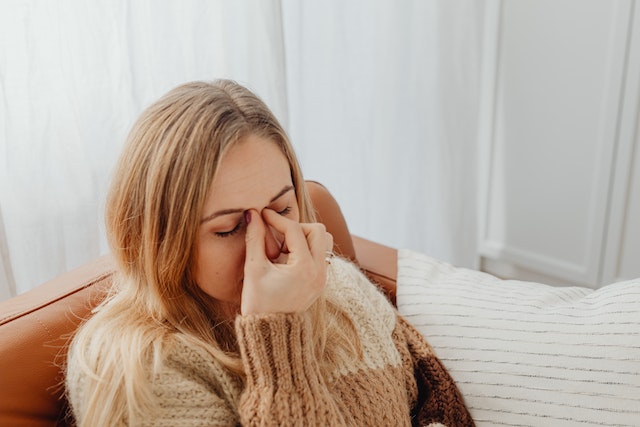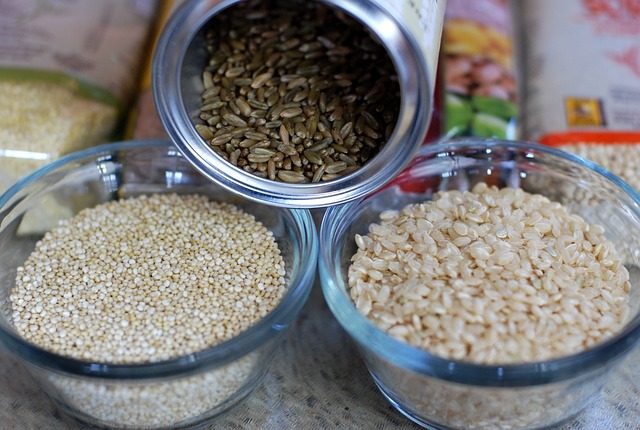Premenstrual Syndrome (PMS) is a common condition that affects many women during their menstrual cycle. Symptoms can range from mild to severe and may include mood swings, cramps, bloating, and fatigue. While there are several over-the-counter medications available to alleviate PMS symptoms, many women prefer to explore natural remedies as an alternative. In this article, we’ll explore some of the most popular natural remedies for PMS, including magnesium and evening primrose oil.
Magnesium
Magnesium is a mineral that is essential for a variety of bodily functions, including muscle and nerve function, heart health, and bone strength. It is also believed to be effective in alleviating PMS symptoms. According to a study published in the Journal of Women’s Health, magnesium supplementation was found to be effective in reducing PMS-related symptoms such as bloating, breast tenderness, and mood swings.
To increase your magnesium intake, you can try incorporating magnesium-rich foods into your diet, such as leafy green vegetables, nuts, seeds, and whole grains. Alternatively, you can take a magnesium supplement. The recommended daily intake for magnesium is around 310-320mg for women.
Evening Primrose Oil
Evening primrose oil is a popular herbal remedy that is believed to be effective in alleviating PMS symptoms. The oil is derived from the seeds of the evening primrose plant, which is native to North America. According to a study published in the Journal of Reproductive Medicine, evening primrose oil was found to be effective in reducing PMS symptoms such as breast tenderness, bloating, and mood swings.
To take evening primrose oil, you can find it in capsule form at most health food stores. The recommended dosage is typically 1-3 grams per day. However, it’s important to note that evening primrose oil can interact with certain medications, so it’s best to speak with your healthcare provider before taking it.
Other Natural Remedies
In addition to magnesium and evening primrose oil, there are several other natural remedies that may be effective in alleviating PMS symptoms. These include:
- Calcium: Calcium is another mineral that may be effective in reducing PMS-related symptoms such as mood swings and bloating. You can increase your calcium intake by incorporating dairy products, leafy green vegetables, and fortified foods into your diet.
- Vitamins B6 and E: Vitamins B6 and E are both believed to be effective in reducing PMS symptoms. You can find these vitamins in supplement form or by incorporating foods such as nuts, seeds, and leafy green vegetables into your diet.
- Exercise: Regular exercise is believed to be effective in reducing PMS symptoms such as fatigue and mood swings. Aim for at least 30 minutes of moderate exercise most days of the week.
Conclusion
While PMS can be a challenging condition to deal with, there are several natural remedies that may be effective in alleviating symptoms. From magnesium to evening primrose oil, incorporating these natural remedies into your routine may help reduce symptoms and improve your overall quality of life. However, it’s important to speak with your healthcare provider before starting any new supplements or remedies, especially if you have underlying health conditions or are taking medications.
Photo by Andrea Piacquadio
Natural Remedies
-

Easy 5 Kitchen Remedies to Beat Bloating Naturally
Bloating can be a discomforting sensation, often caused by various factors including dietary choices and digestive issues. Fortunately, your kitchen is filled with ingredients that can help alleviate bloating and promote better digestion. In this article, we will explore five effective kitchen remedies for bloating, along with instructions on how to use them and the…
-

Sauna Improves Heart Health in These Ways
-

How Breathwork Helps to Improve Respiratory Health
-

Natural Remedies for Sinus Infections For Quick Relief
-

How Sauna Therapy Can Cleanse and Detoxify the Body
-

Naturally Combating Fatigue: Effective Remedies to Boost Energy and Vitality
-

9 Natural Remedies for Acid Reflux and Heartburn









Leave a Reply